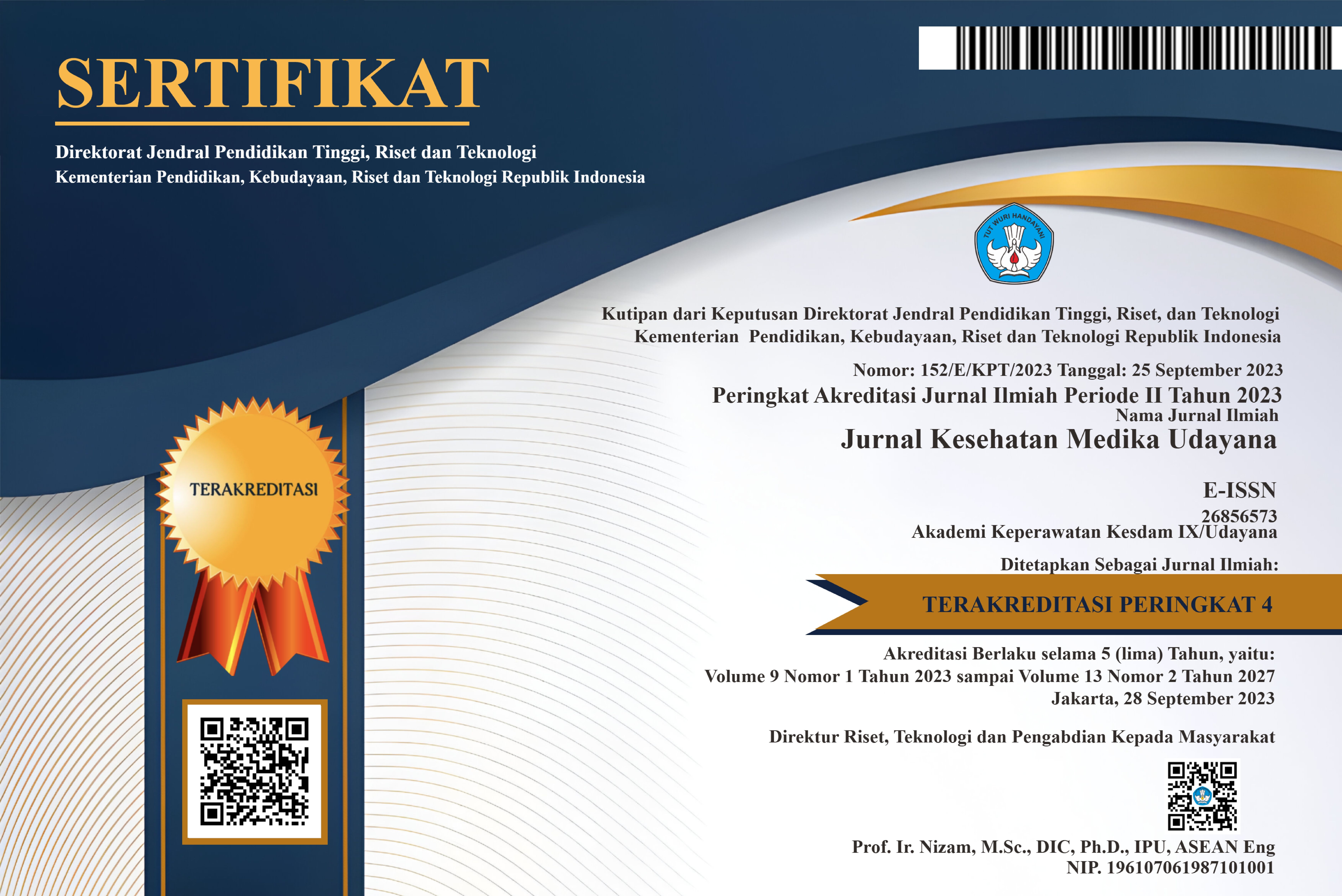Hubungan Gejala Gangguan Stres Pascatrauma dengan Kualitas Hidup Anggota Relawan Bencana Banjir di Putussibau Kalimantan Barat
DOI:
https://doi.org/10.47859/jmu.v10i02.402Keywords:
Gangguan Stres Pascatrauma, Kualitas hidup, Relawan banjirAbstract
Background: PTSD occurs when a person undergoes life-threatening events like war, terrorism, accidents, abuse, or natural disasters. It can greatly impact an individual's well-being, causing harm to their physical, mental, social, and environmental health. Purpose: The aim of this research is to uncover the connection between PTSD symptoms and the quality of life. Methods: This study used a quantitative approach with descriptive characteristics and a cross-sectional design. The number of participants was 135 people who volunteered to be involved in flood disaster management operations. The research location was in Putussibau. Results: According to the possibility of PTSD, about 32.6% of respondents were suspected of experiencing PTSD symptoms. In terms of physical health, 34.1% of respondents had a moderate level, in terms of psychological well-being, 34.8% of respondents had a moderate level, in terms of social relationships, 27.4% of respondents had a poor level, and in terms of relationships with the environment, 33.3% of respondents had a good level. The results of the bivariate test showed that the p value had a value greater than 0.05. Conclusion: Due to the frequent flooding in Putussibau, volunteers may experience adjustments. In addition, engagement in regular exercise may be a factor that supports a good quality of life for respondents. These factors may explain why no correlation was found between the two variables.
References
Hajat, S. et al. The Human Health Consequences of Flooding in Europe: a Review. in Extreme Weather Events and Public Health Responses 185–196 (Springer-Verlag, 2005). doi:10.1007/3-540-28862-7_18.
Ahern, M., Kovats, R. S., Wilkinson, P., Few, R. & Matthies, F. Global Health Impacts of Floods: Epidemiologic Evidence. Epidemiol Rev 27, 36–46 (2005).
Mason, V., Andrews, H. & Upton, D. The psychological impact of exposure to floods. Psychol Health Med 15, 61–73 (2010).
Carroll, B., Balogh, R., Morbey, H. & Araoz, G. Health and social impacts of a flood disaster: responding to needs and implications for practice. Disasters 34, 1045–1063 (2010).
Khoirul Amin, M., Tri Astuti, R. & Purborini, N. Manajemen penanganan Post Traumatik Stress Disorder (PTSD) Berdasarkan Konsep dan Penelitian Terkini. vol. VII (Magelang UNIMMA Press, 2018).
American Psychiatric Association. DIAGNOSTIC AND STATISTICAL MANUAL OF DSM-5 TM. vol. 5 (2013).
Erlin, F. & Sari, I. Y. Gejala PTSD (Post Traumatic Stress Disorder) Akibat Bencana Banjir Pada Masyarakat Kelurahan Meranti Rumbai Pesisir Pekanbaru. Dinamika Lingkungan Indonesia 7, 16–21 (2020).
Alvarez, J. & Hunt, M. Risk and resilience in canine search and rescue handlers after 9/11. J Trauma Stress 18, 497–505 (2005).
Durham, T. W., McCammon, S. L. & Allison, E. J. The psychological impact of disaster on rescue personnel. Ann Emerg Med 14, 664–668 (1985).
Schiraldi, G. R. The Post-Traumatic Stress Disorder Sourcebook Second Edition. (McGraw-Hill, 2001).
Landry, B. M., Choe, E. K., McCutcheon, S. & Kientz, J. A. Post-traumatic stress disorder. in Proceedings of the 1st ACM International Health Informatics Symposium 780–789 (ACM, 2010). doi:10.1145/1882992.1883110.
Mayers, P. M. & Machin, D. Quality of Life: The Assess The Assessment, Analysis and Reporting of Patient-reported Outcomes, 3rd Edition. (Wiley-Blackwell, 2015).
Ekasari, M. F., Riasmini, N. M. & Hartini, T. Meningkatkan Kualitas Hidup Lansia Konsep dan Berbagai Strategi Intervensi. (Wineka Media, 2018).
Junaedi, M. Y. PCL-5 Versi Indonesia (Spesifik Covid-19). (Universitas Gadjah Mada, 2021).
Agustin, R. W. Pedoman Penanggulangan Kesehatan Mental Pasca Bencana. (2010).







